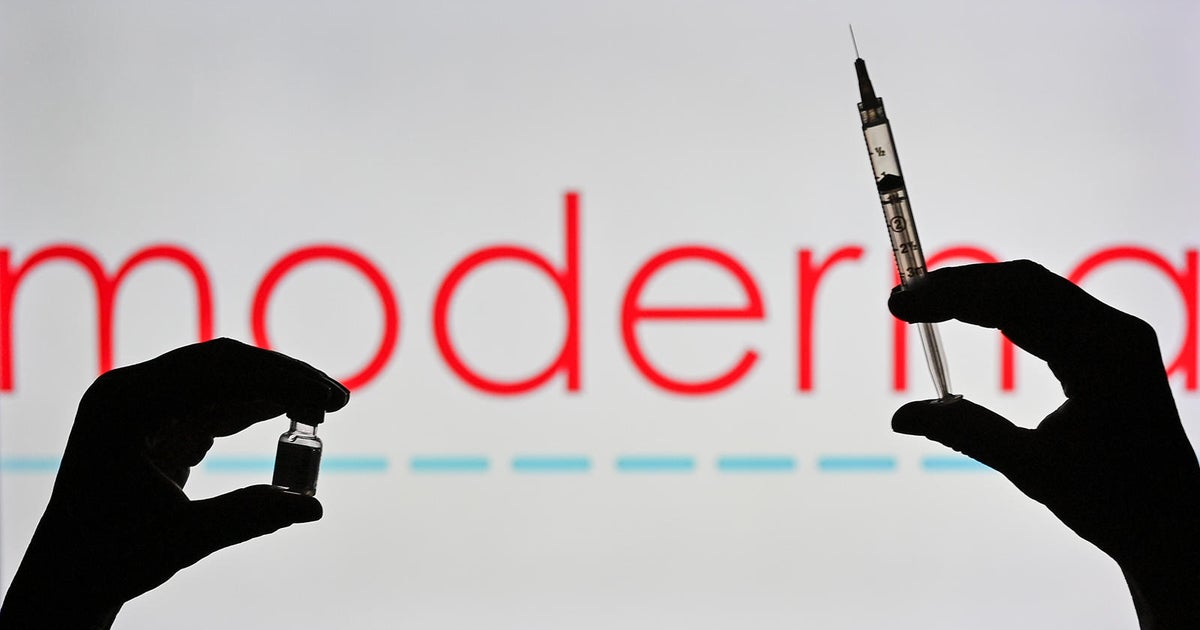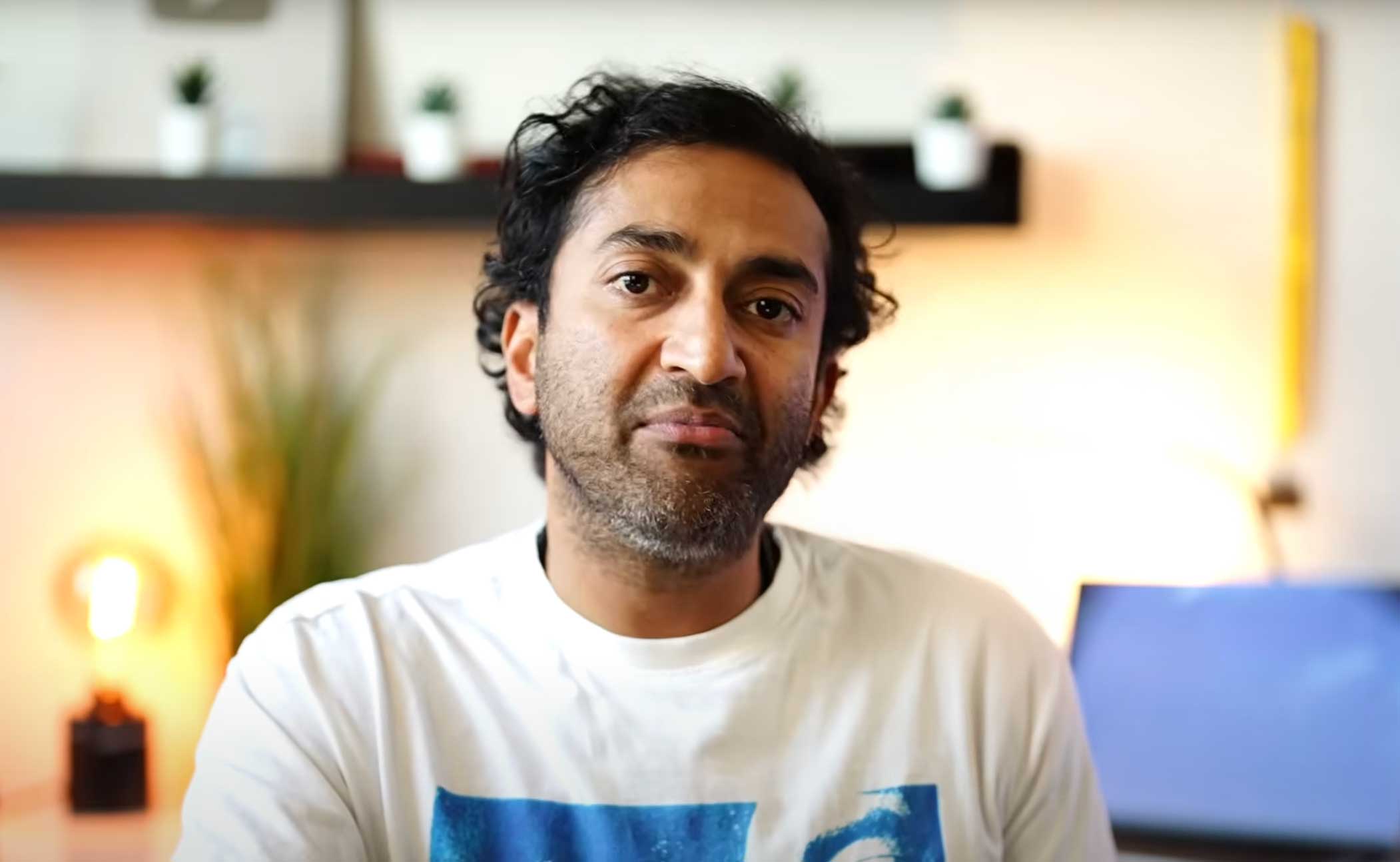Transcript: Moncef Slaoui on "Face the Nation," December 6, 2020
The following is a transcript of an interview with Operation Warp Speed chief adviser Moncef Slaoui that aired Sunday, December 6, 2020, on "Face the Nation."
MARGARET BRENNAN: Mark Strassmann, thank you. We want to go now to the chief adviser of the US vaccine effort. That's Operation Warp Speed. Dr. Moncef Slaoui joins us from just outside of Philadelphia. Good morning to you, doctor.
DOCTOR MONCEF SLAOUI: Good morning.
MARGARET BRENNAN: You know, before we get into the vaccine specifics, I just want to ask you to set expectations, if you could, because people hear a vaccine's on the horizon and they may let down their guard over the next few weeks. How long before we could see a vaccine have an impact on lowering infections?
DR. SLAOUI: Well, I think we may start to see some impact on the most susceptible people probably in the month of January and February, but the- on a population basis for- for- for our lives to start getting back to normal, we're talking about April or May. And therefore, it's absolutely vital that everybody, A, take comfort in the fact that we have light at the end of the tunnel and find the energy in that to continue to wear our masks, distance, wash our hands, pay attention to what we are doing to make sure that we are there by the spring to benefit from the vaccine.
MARGARET BRENNAN: Thank you for that. When it comes to actually delivering shots in the arms, Russia, the UK are about to begin that in the next few days. The US still has not approved its vaccine, the first in line from Pfizer. Are you confident it will be approved in the next five days?
DR. SLAOUI: Well, as you know, there is a- an FDA review that will take place on Thursday, this coming week. It's a very important and deep process that the FDA is taking. In fact, the FDA is making sure it's doing it the way it always does it, including full transparency, public discussions with its advisory board made of independent experts. I- based on the data that I know, I expect the FDA to make a positive decision. But of course, it's their decision. And as you probably know, they are totally separated and firewalled from the operation. They will make their own judgment based on the data. And I hope that the decision will be positive.
MARGARET BRENNAN: Doctor, do you still expect the first vaccine shipments to be sent out by the federal government December 15th?
DR. SLAOUI: Well, the first vaccine shipment will happen on the day after the vaccine is approved. That's how we planned it. If the vaccine is approved on the 10th or the 11th, the minute it's approved the shipments will start. It should take them about 24 hours to make it to the various immunization sites that the various jurisdiction and states have told us to ship vaccines to them. And within, I would say, 36 hours from approval, potentially the first immunization could be taking place.
MARGARET BRENNAN: What are the side effects of the Pfizer and Moderna vaccines?
DR. SLAOUI: So very important question, the vaccines have been studied in over 70,000 people, so we have a good understanding on the side effect that take place within the- the six months that we have been studying this vaccine. They are primarily side effects in the injection sites. They last one to two days. In about 10 or 15% of people, they can have significant, not overwhelming, but significant pain, redness at the injection site that can be treated with Advil or Tylenol and also a little bit of fever and chills. Those disappear within 24 to 36 hours. There are no serious adverse events associated with these vaccines to the best of our understanding and assessment into the trial period. And we know from the hundreds of thousands of subjects that have been studied with other vaccines over the past 30 or 40 years, that most serious adverse events with vaccines happen within, let's say, a month and a half to two months after people completed their immunization. We have that observation with these vaccines, there are no such serious side effects. We are confident that in the long term, this vaccine will remain very effective and very safe. The duration of protection overall is not understood yet simply because we didn't have a long enough time to study it.
MARGARET BRENNAN: But I- I read that you yourself have an eight-year-old child. Vaccines--
DR. SLAOUI: Yes, I do.
MARGARET BRENNAN: -- haven't been tested on- on small children yet. Should parents expect that kids under 12 will get a shot in the arm before they go back to school in the fall?
DR. SLAOUI: Well, so we are working to run clinical trials in adolescents and then toddlers over the next four or five months. Hopefully we may have the data by the fall. And if we have the data and the FDA reviews them and approves the use of the vaccine in younger children, then they could have it. At this point, the vaccines have only been studied, all of them, up to 18 years of age, not lower for Moderna, lower for Pfizer, all the way to the age of 12. Whether the FDA will already approve it to the age of 12 or will stop at the age of 18, we will know on Thursday or Friday when the FDA approves the vaccine.
MARGARET BRENNAN: So you wouldn't give it to your own child until five months from now or longer?
DR. SLAOUI: Yes, I think we should all be immunized when a vaccine is approved for use in whatever that population is, it would not be appropriate to give it to my child because it wouldn't be approved yet. I will take the vaccine. The people I love that- for whom the vaccine is recommended. I will absolutely recommend that they take the vaccine and I know they will take it.
MARGARET BRENNAN: I want to ask you about the government plans to distribute this. We know from Operation Warp Speed you will have 40 million doses of vaccine this month. But the plan is to vaccinate 20 million people. Why not use that first 40 million that you have to hit a broad swath of people and then when supply increases, go back for that second dose. Why hit 20, not 40 out of the gate?
DR. SLAOUI: Yes, it's a very important question and one that we have debated and studied in depth. The full immunization schedule for these vaccines is to have two doses of vaccine, either three weeks or four weeks apart. That's how we achieved 95% efficacy broadly and, in fact, 100% efficacy against severe disease. We don't know how the behavior of the vaccine would be if we omit to give the second dose at three weeks or at four weeks after the first dose. We are at the onset of the industrial manufacturing of these vaccines. Every dose we make, we are prepared to ship. But, you know, as always, early in manufacturing, there may be challenges. Sometimes vaccine doses can be delayed by a week or a few days or, God forbid, by three weeks. It would be inappropriate to partially immunize large numbers of people and not complete their immunization. I think it may actually decrease the confidence in the vaccine. We want to do things by exactly how they were studied and how they have been approved.
MARGARET BRENNAN: Well, you're raising some questions there about--
DR. SLAOUI: We hope to have no interruptions.
MARGARET BRENNAN: Well, I- I want to ask you about that because you're raising some--
DR. SLAOUI: Go ahead.
MARGARET BRENNAN: --questions there about manufacturing. We did see Pfizer say this week that they had some supply chain issues and so they're going to have to deliver things later than originally planned. Are you worried then that there are going to be further delays in manufacturing and that you don't have enough supply?
DR. SLAOUI: I'm simply pragmatic and factual, and I say that in my 30 years career in the industry, we are manufacturing biological products. We're not manufacturing a watch or a phone, something that's all about engineering, where we can plan everything exactly as we want. So we always,--
MARGARET BRENNAN: Okay.
DR. SLAOUI: --always launch a product after we have built a stock of products so we can manage the ebbs and the flows in the early days of manufacturing. We- I don't know at all a fact that tells me we will have problems, but my experience tells me we may have problems, small problems. I- I spoke about a week or two in delays, and therefore we need to be just careful about how we go about things.
MARGARET BRENNAN: President-elect Joe Biden has criticized Operation Warp Speed's plan, saying there's no detailed plan as to how you get the vaccine out of a container, into an injection syringe, into somebody's arm. Have you fully briefed the president-elect's team?
DR. SLAOUI: So we haven't had any meetings yet. I know we have a- a meeting this coming week and we really look forward to it because actually things have been really very appropriately planned. I do think that part of the plans or maybe part of the confusion is part of our plans is that the jurisdiction and the state health agency in each states are going to take on the responsibility and accountability of actually delivering the vaccine. But there are videos, there are explanation exactly how to go about it. We plan to have all the ancillary material, the syringes, the needles, the swabs, everything co-localized with the vaccine. So, I think the plans are there. And I feel confident that once we will explain it, everything in detail, I hope the new transition teams will understand that things are well planned. And--
MARGARET BRENNAN: Okay.
DR. SLAOUI: --frankly, our commitment is to make sure these vaccines make it safely to the U.S. population, and we will do the best we can to make that happen through the transition without any interruption.
MARGARET BRENNAN: All right, Dr. Slaoui, good luck with that. Thank you for joining us today.
DR. SLAOUI: Thank you. Thank you for having me.
The following is an air-cut transcript of an interview with Operation Warp Speed chief adviser Moncef Slaoui that aired Sunday, December 6, 2020, on "Face the Nation."



